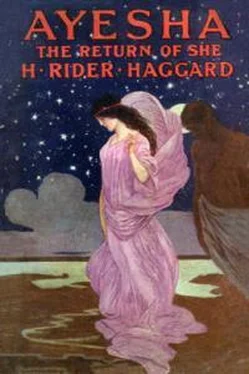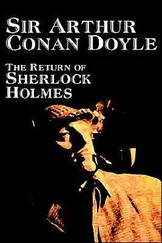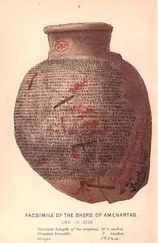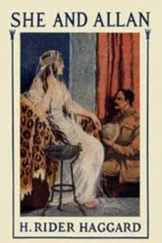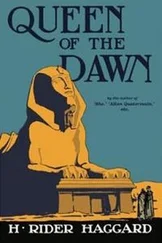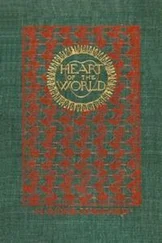To all these bitter insults, venomed with the sting of truth, Atene listened without a word. Then, she turned to us and bowed.
"My guests," she said, "I pray you pardon me for all I cannot help. You have strayed to a corrupt and evil land, and there stands its crown and flower. Khan Rassen, your doom is written, and I do not hasten it, because once for a little while we were near to each other, though you have been naught to me for this many a year save a snake that haunts my house. Were it otherwise, the next cup you drank should still your madness, and that vile tongue of yours which gives its venom voice. My uncle, come with me. Your hand, for I grow weak with shame and woe."
The old Shaman hobbled forward, but when he came face to face with the Khan he stopped and looked him up and down with his dim eyes. Then he said—"Rassen, I saw you born, the son of an evil woman, and your father none knew but I. The flame flared that night upon the Fire–mountain, and the stars hid their faces, for none of them would own you, no, not even those of the most evil influence. I saw you wed and rise drunken from your marriage feast, your arm about a wanton's neck. I have seen you rule, wasting the land for your cruel pleasure, turning the fertile fields into great parks for your game, leaving those who tilled them to starve upon the road or drown themselves in ditches for very misery. And soon, soon I shall see you die in pain and blood, and then the chain will fall from the neck of this noble lady whom you revile, and another more worthy shall take your place and rear up children to fill your throne, and the land shall have rest again."
Now I listened to these words—and none who did not hear them can guess the fearful bitterness with which they were spoken—expecting every moment that the Khan would draw the short sword at his side and cut the old man down. But he did not; he cowered before him like a dog before some savage master, the weight of whose whip he knows. Yes, answering nothing, he shrank into the corner and cowered there, while Simbri, taking Atene by the hand, went from the room. At its massive, iron–bound door he turned and pointing to the crouching figure with his staff, said—"Khan Rassen, I raised you up, and now I cast you down. Remember me when you lie dying—in blood and pain."
Their footsteps died away, and the Khan crept from his corner, looking about him furtively.
"Have that Rat and the other gone?" he asked of us, wiping his damp brow with his sleeve; and I saw that fear had sobered him and that for awhile the madness had left his eyes.
I answered that they had gone.
"You think me a coward," he went on passionately, "and it is true, I am afraid of him and her—as you, Yellow–beard, will be afraid when your turn comes. I tell you that they sapped my strength and crazed me with their drugged drink, making me the thing I am, for who can war against their wizardries? Look you now. Once I was a prince, the lord of half this land, noble of form and upright of heart, and I loved her accursed beauty as all must love it on whom she turns her eyes. And she turned them on me, she sought me in marriage; it was that old Rat who bore her message.
"So I stayed the great war and married the Khania and became the Khan; but better had it been for me if I had crept into her kitchen as a scullion, than into her chamber as a husband. For from the first she hated me, and the more I loved, the more she hated, till at our wedding feast she doctored me with that poison which made me loathe her, and thus divorced us; which made me mad also, eating into my brain like fire."
"If she hated you so sorely, Khan," I asked, "why did she not mix a stronger draught and have done with you?"
"Why? Because of policy, for I ruled half the land. Because it suited her also that I should live on, a thing to mock at, since while I was alive no other husband could be forced upon her by the people. For she is not a woman, she is a witch, who desires to live alone, or so I thought until to–night"—and he glowered at Leo.
"She knew also that although I must shrink from her, I still love her in my heart, and can still be jealous, and therefore that I should protect her from all men. It was she who set me on that lord whom my dogs tore awhile ago, because he was powerful and sought her favour and would not be denied. But now," and again he glowered at Leo, "now I know why she has always seemed so cold. It is because there lived a man to melt whose ice she husbanded her fire."
Then Leo, who all this while had stood silent, stepped forward.
"Listen, Khan," he said. "Did the ice seem like melting a little while ago?"
"No—unless you lied. But that was only because the fire is not yet hot enough. Wait awhile until it burns up, and melt you must, for who can match his will against Atene?"
"And what if the ice desires to flee the fire? Khan, they said that I should kill you, but I do not seek your blood. You think that I would rob you of your wife, yet I have no such thought towards her. We desire to escape this town of yours, but cannot, because its gates are locked, and we are prisoners, guarded night and day. Hear me, then. You have the power to set us free and to be rid of us."
The Khan looked at him cunningly. "And if I set you free, whither would you go? You could tumble down yonder gorge, but only the birds can climb its heights."
"To the Fire–mountain, where we have business."
Rassen stared at him.
"Is it I who am mad, or are you, who wish to visit the Fire–mountain? Yet that is nothing to me, save that I do not believe you. But if so you might return again and bring others with you. Perchance, having its lady, you wish this land also by right of conquest. It has foes up yonder."
"It is not so," answered Leo earnestly. "As one man to another, I tell you it is not so. I ask no smile of your wife and no acre of your soil. Be wise and help us to be gone, and live on undisturbed in such fashion as may please you."
The Khan stood still awhile, swinging his long arms vacantly, till something seemed to come into his mind that moved him to merriment, for he burst into one of his hideous laughs.
"I am thinking," he said, "what Atene would say if she woke up to find her sweet bird flown. She would search for you and be angry with me."
"It seems that she cannot be angrier than she is," I answered. "Give us a night's start and let her search never so closely, she shall not find us."
"You forget, Wanderer, that she and her old Rat have arts. Those who knew where to meet you might know where to seek you. And yet, and yet, it would be rare to see her rage. 'Oh, Yellow–beard, where are you, Yellow–beard?' he went on, mimicking his wife's voice. 'Come back and let me melt your ice, Yellow–beard.'"
Again he laughed; then said suddenly—"When can you be ready?"
"In half an hour," I answered.
"Good. Go to your chambers and prepare. I will join you there presently."
So we went.
Chapter XI
The Hunt and the Kill
We reached our rooms, meeting no one in the passages, and there made our preparations. First we changed our festal robes for those warmer garments in which we had travelled to the city of Kaloon. Then we ate and drank what we could of the victuals which stood in the antechamber, not knowing when we should find more food, and filled two satchels such as these people sling about their shoulders, with the remains of the meat and liquor and a few necessaries. Also we strapped our big hunting knives about our middles and armed ourselves with short spears that were made for the stabbing of game.
"Perhaps he has laid a plot to murder us, and we may as well defend ourselves while we can," suggested Leo.
I nodded, for the echoes of the Khan's last laugh still rang in my ears. It was a very evil laugh.
Читать дальше
Конец ознакомительного отрывка
Купить книгу
